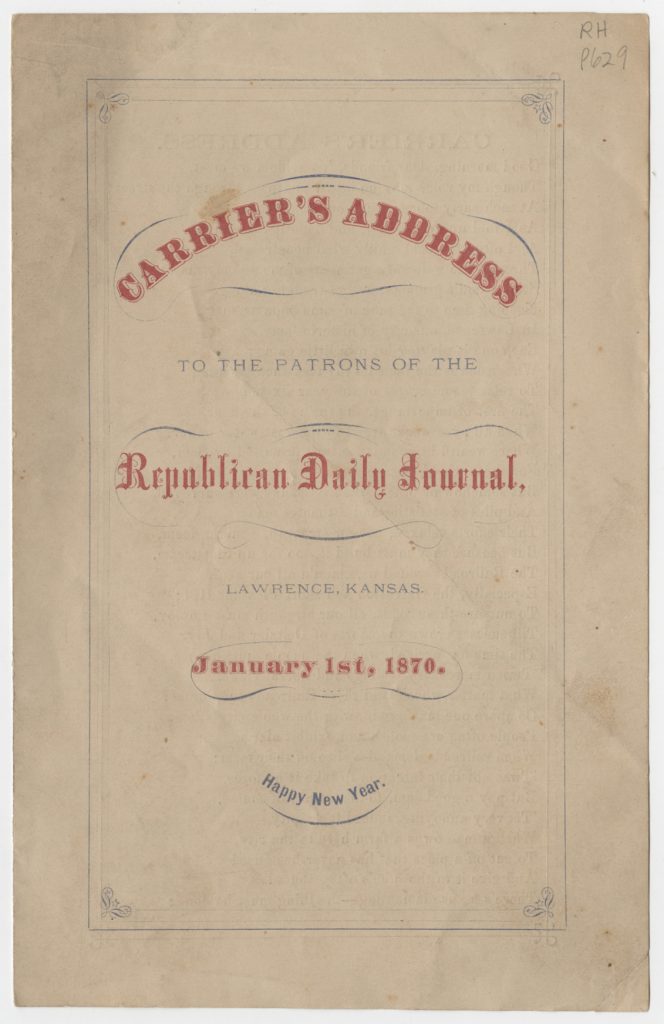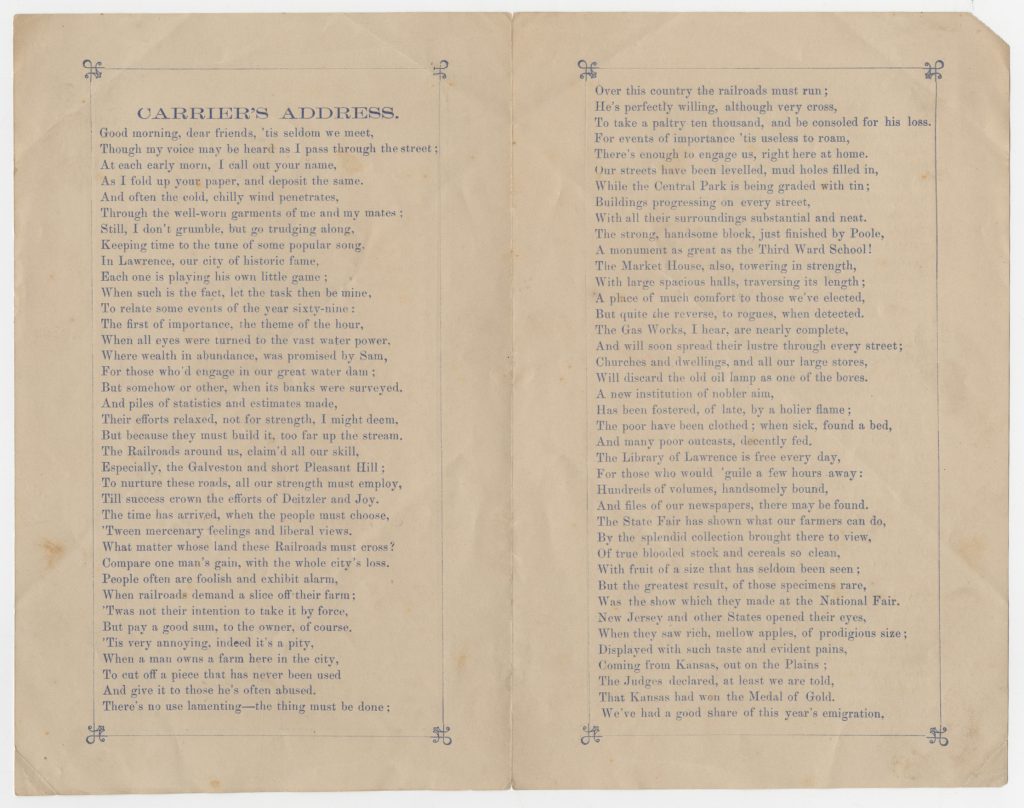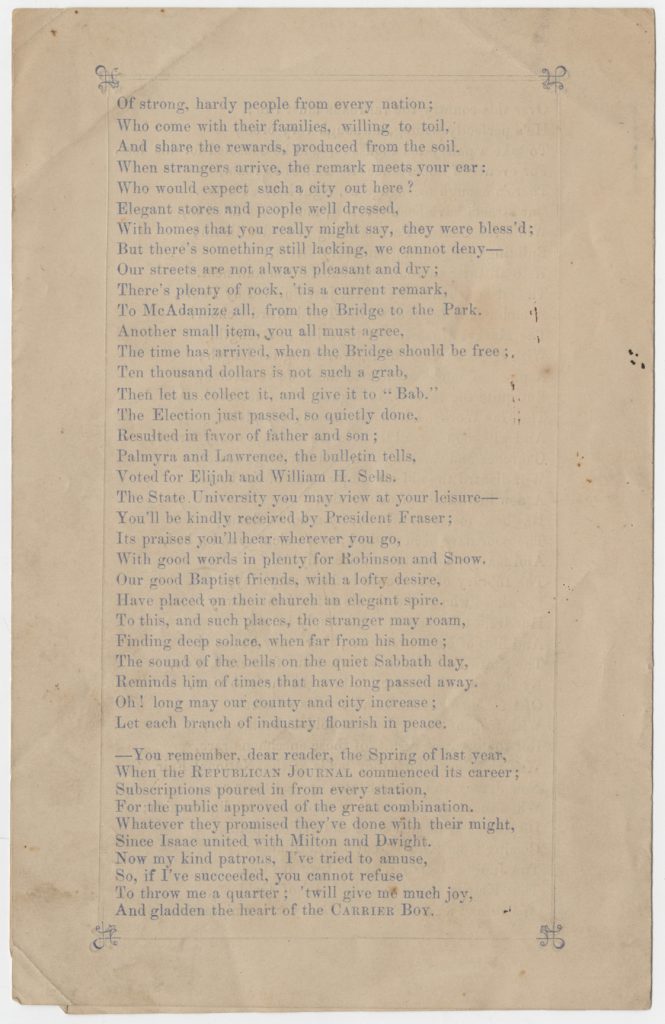Celebrate the New Year with a Carrier’s Address
January 1st, 2018Carriers’ addresses were published by newspapers, usually on January 1, and distributed in the United States for more than two centuries. The custom originated in England and was introduced here during colonial times. The newsboys delivered these greetings in verse each New Year’s Day and the customers understood that a tip was expected. The poems, often anonymous, describe the events of the past year, locally, regionally, and nationally, and end with a request for a gratuity for the faithful carrier. Often the poem referred to the carrier’s diligence and hardships during winter weather. Illustrated with wood-engravings and decorative borders, carriers’ addresses are distinctive examples of popular publishing in nineteenth century America.
Brown University Library Center for Digital Scholarship
Spencer Research Library has several carriers’ addresses in its holdings, including one distributed in Lawrence on January 1, 1870, to readers of the Republican Daily Journal newspaper.
Carrier’s Address to the Patrons of the Republican Daily Journal,
Lawrence, Kansas, January 1st, 1870: Happy New Year.
Call Number: RH P629. Click images to enlarge.
The poem notes that “For events of importance ’tis useless to roam/There’s enough to engage us, right here at home.” Throughout 1869, Lawrence residents were focused on several local events and topics, including the following, mentioned in the text:
- A failed attempt to build a dam on the Kansas River.
- Controversies about the railroad (“what matter whose land these Railroads must cross?”) and the tolls charged to use the only bridge crossing the Kansas River at Lawrence (“the time has arrived, when the Bridge should be free”).
- Road improvements and remaining problems.
- New buildings, including the gas works (a plant for manufacturing gas and especially illuminating gas) and the First Baptist Church.
- Praise for the city Library and the University of Kansas.
- The success of the Kansas State Fair (held in Lawrence, September 7-10) and Kansas entries at the National Fair.
- Immigrants moving to Lawrence
- The election of Elijah Sells and his son William H. Sells to represent two of Douglas County’s six districts in the Kansas Legislature.
What did Lawrence look like in 1869? Check out a bird’s-eye view of the town from that year, digitized by the Library of Congress. Be sure to zoom in to see all of the details. (Spencer Research Library also has a copy of this map.)
Caitlin Donnelly
Head of Public Services



